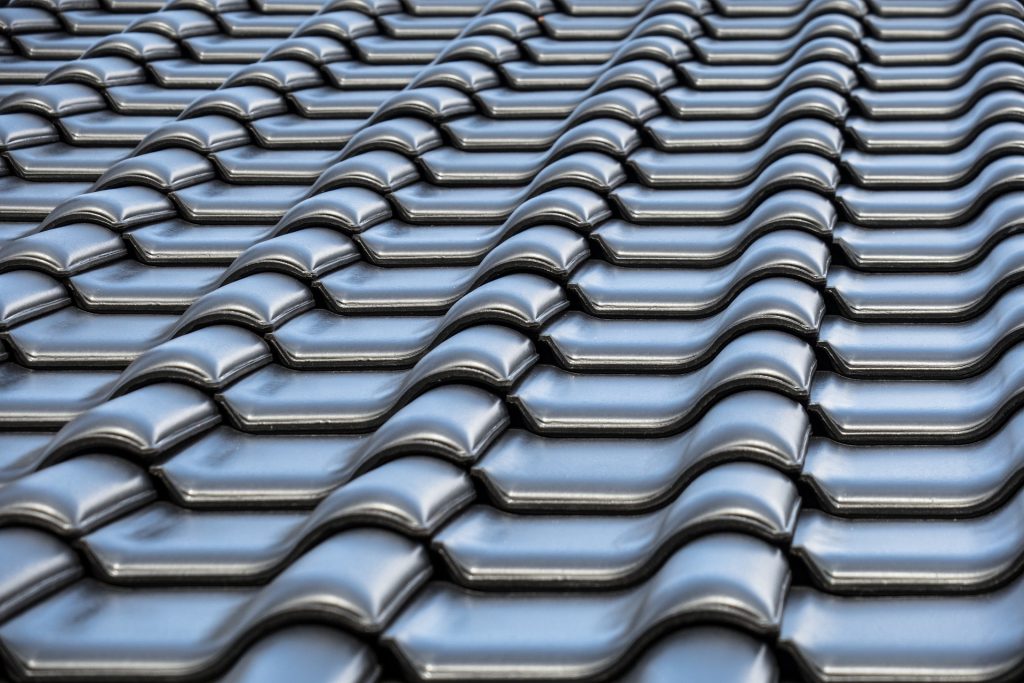
Tile roofing is a hallmark of architectural beauty and resilience in the Dallas-Fort Worth Metropolitan Area. With its roots tracing centuries, tile roofing represents a confluence of traditional elegance and modern durability. Especially suited for the variable weather of this region—from searing summers to unpredictable winters—tile roofing provides homes with superior protection. Beyond its robust defense against the elements, tile roofing offers an aesthetic appeal, evoking memories of picturesque Mediterranean locales and historic European villages.
As homeowners in the metroplex prioritize aesthetics and functionality, tile roofing emerges as a premier choice. Anyone contemplating enhancing their property’s curb appeal and structural integrity in the Dallas-Fort Worth area should deeply consider the unparalleled benefits of tile roofing. Delve into this guide to gain a deeper appreciation of the versatility and value it brings to homes.
Tile roofing is a roofing system primarily made from clay or concrete tiles. Known for its durability, longevity, and visual appeal, tile roofing has been a preferred choice for shelter across various civilizations for millennia. It’s distinctive for its often wavy, semi-cylindrical shape, although flat and other styles are also prevalent. Traditionally, clay tiles were handmade and baked in the sun or kilns, but with technological advances, modern tiles are manufactured to provide even greater resistance to environmental factors.
Apart from clay, tile roofing can also be made from concrete, slate, and terracotta. Each material has its unique benefits and aesthetic touches. One of the significant advantages of tile roofing is its ability to reflect solar heat, making it energy-efficient, especially in areas with hot climates. Furthermore, it is fire-resistant, impervious to rot and insect damage, and can last several decades—sometimes even a century—with proper maintenance. Its variety in colors, finishes, and designs allows homeowners to customize their roofs according to architectural needs and personal preferences, making tile roofing a versatile option for diverse structures.
Tile roofing offers many choices for homeowners in the Dallas-Fort Worth Metropolitan Area, TX. Here’s a closer look at the popular types:
The most traditional and timeless clay tiles are known for their durability. They are non-combustible in styles such as Spanish, mission, and flat shapes and offer commendable fire resistance.
A versatile and cost-effective alternative to clay, concrete tiles are slightly heavier but bring various colors and designs to the table. Their robustness and fire-resistant nature make them a popular choice.
Slate Tiles Synonymous with luxury and sophistication, slate tiles offer a unique texture and color palette. They are, however, on the heavier side and can be pricier than other options.
Sturdier than clay, thanks to an intensive firing process, ceramic tiles come in vibrant colors, ensuring aesthetic versatility.
A nod to rustic elegance, terracotta tiles, with their reddish-brown hue, are perfect for homes leaning towards a Mediterranean or Southwestern vibe.
Combining materials like plastic, rubber, and clay, composite tiles marry durability with the aesthetics of traditional tile materials.
Lightweight and sturdy metal tiles emulate the look of clay or concrete tiles but offer the benefits inherent to metal roofing.
Stepping into the future, solar tiles allow homeowners to harness solar energy directly. They’re an investment that offers both energy efficiency and potential tax credits.
With such a rich array of tile roofing options, homeowners in the Dallas-Fort Worth area can tailor their choice to their aesthetic preferences, budget, and functional requirements. Consulting with local roofing specialists can further refine the selection process.
Tile roofing, typically made from clay, concrete, or slate, is one of the oldest types of roofing materials still in use today. Like any roofing material, tile roofing has its advantages and disadvantages.
While tile roofing offers several benefits, including longevity, durability, and aesthetic appeal, it also comes with certain challenges, such as weight considerations and higher costs. Homeowners should weigh these pros and cons when considering tile roofing.
At SCR, our expertise shines brightest in tile roofing installation. Recognized for its unmatched longevity and aesthetic appeal, tile roofing is a favored choice for discerning homeowners. And when it comes to this specific installation, no one does it better than SCR. Every tile roofing installation we undertake blends traditional elegance and modern precision. Tiles inherently reflect sunlight, ensuring energy efficiency, and our installation technique magnifies this benefit.
The non-combustible nature of tiles offers an extra layer of protection against fires, a safety feature we emphasize during our installation process. Our seasoned team approaches each tile roofing installation with unmatched precision, ensuring durability and optimal protection against external elements. Investing in SCR’s tile roofing installation guarantees a beautiful roof, peace of mind, longevity, and cost-effectiveness. Choose SCR, where tile roofing installation is an art perfected.
Tile roofs are generally considered more durable and resilient than traditional asphalt shingles. While both materials have their strengths, tile roofs can withstand more severe weather conditions and are less susceptible to damage from UV rays and high temperatures.
Tile roofs, when properly maintained, can last for several decades. It’s not uncommon for tile roofs to have 50 to 100 years or more lifespan, whereas asphalt shingles typically last between 20 to 30 years.
The “best” tile roof often depends on specific needs and environmental factors. However, clay and concrete tiles are popular due to their longevity and aesthetic appeal. Clay tiles are known for their classic appearance and durability, while concrete tiles are versatile and can mimic the appearance of wood, slate, or stone.
While shingles are more economical and quicker to install, they have some disadvantages when compared to tile roofs:
Tile roofs are robust and designed to endure tough conditions. However, like any roofing material, they aren’t immune to damage. Tiles can crack if walked on incorrectly or face a significant impact, like hail or fallen tree branches. However, proper installation and maintenance significantly reduce the likelihood of cracking. It’s always advised to have a professional from SCR inspect and maintain your tile roof regularly.











